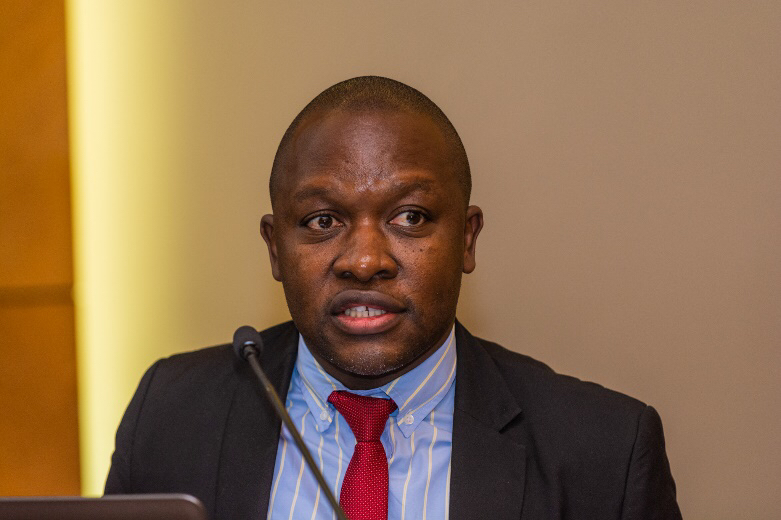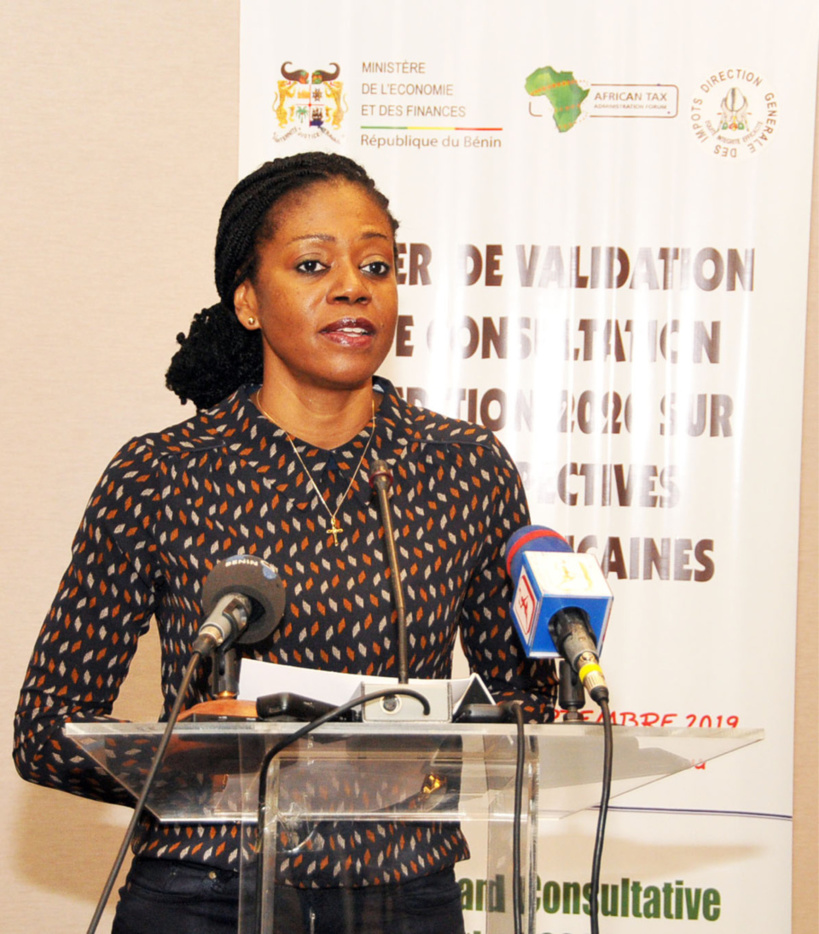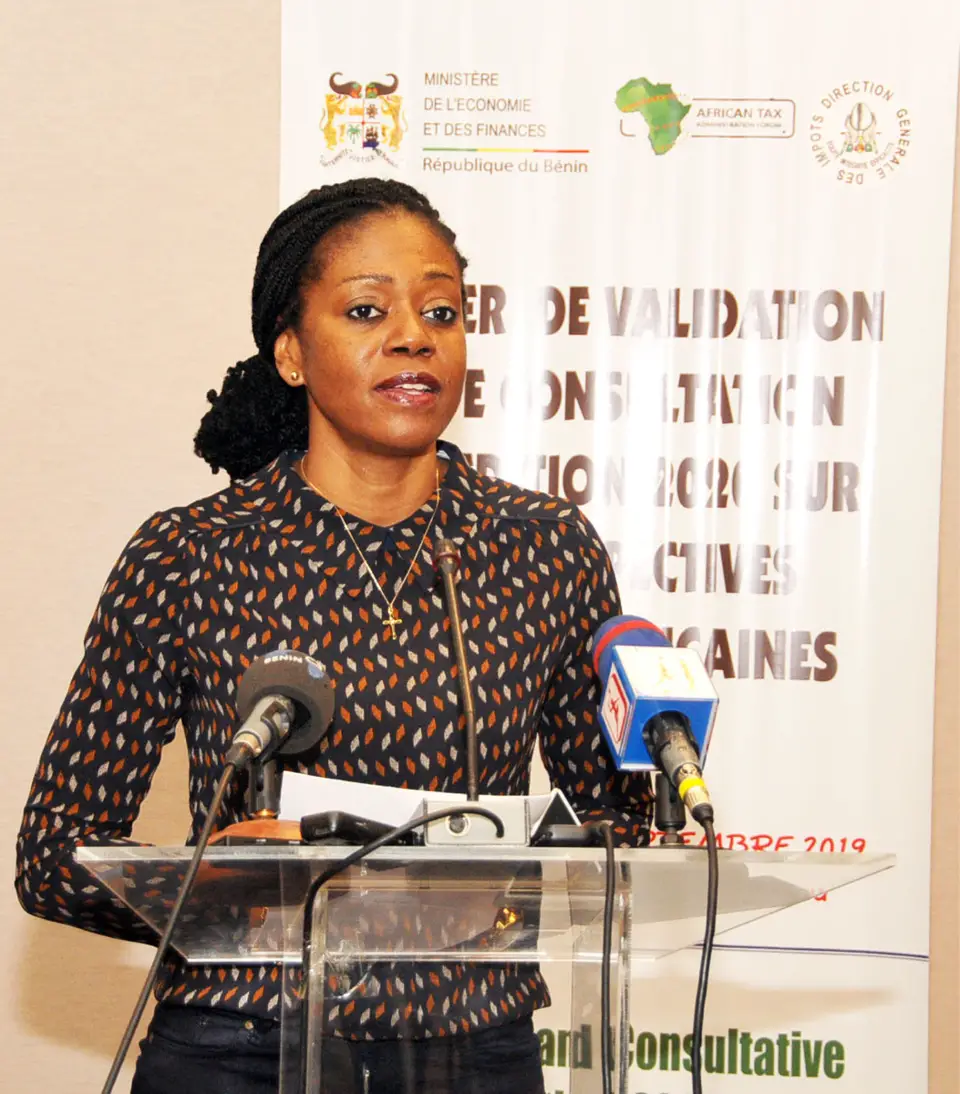
Mr Frankie Mbuyamba leads the team that compiles the African Tax Outlook
Can African countries work together to develop home-grown ICT systems for tax administrations on the continent? That is the focus of a meeting of regional experts to be held in South Africa in early November.
Organised by the African Tax Administration Forum (ATAF), the three-day meeting, from 6-9 November, is the start of an ambitious project by African tax administrations that going forward could be a gamechanger of the continent. Further similar meetings are to be held in other regions of the continent in 2020.
ICT systems are a critical element in the modernisation of tax systems in Africa as they enable the move from manual to automated processes, the implementation of risk engines, and better services through online transacting in the submission of returns and payments. This positively impacts on turnaround times and enhances service to taxpayers.
The problem for many African countries is the huge costs involved in acquiring these systems and the licenses that are needed, the lack of ownership of source codes which results in dependence on service providers and experts from abroad. There is therefore a growing interest in determining whether African countries can work together to develop and implement an ICT system or systems that meets their needs and is affordable.
“African tax administrations have historically deployed outsourced systems. The result has been the deployment of multisource applications, infrastructure and hardware, often incompatible with each other. The costs of the systems themselves and any maintenance, changes and upgrades that are required are prohibitive for many African countries, especially as they have to be paid in dollars,” said Dr Nara Monkam, ATAF’s Director of Research.
The workshop, to be attended by ICT experts from across the continent, aims to determine what an ideal ICT system for African tax administrations should look like, what capacity there is in Africa to develop such a system and what the costs involved are likely to be.
Participants will consider the strengths and weaknesses of the ICT systems already implemented in African countries, the lessons learnt and the problems that were encountered.
“The deliberations at this and subsequent workshops will inform the research that ATAF plans to conduct to guide the development of an African framework for ICT systems implementation. ATAF’s consultants will present the proposed research questions to workshop participants for review and also solicit their views on methodology to be used for the study and the quality of data that ATAF must collect,” Dr Monkam, explained.
The intention is to develop, as a baseline, an African ICT tax systems field guide, i.e. a check list of keys steps African countries can follow when implementing a tax ICT system, whether home-grown or outsourced.
The initiative is one of several projects being undertaken by ATAF’s Research Directorate in its efforts to provide relevant research on matters of interest to African tax administrations.
“ATAF is committed to building an African repository of high quality, relevant scientific knowledge on tax to change and/or influence the discourse, the narrative and thought leadership around taxation on the continent, Dr Monkam said.
“Our aim is to promote tax research by Africans for Africans on issues that are of relevance to the continent. We want to build up a solid body of research and knowledge for Africa which can complement and balance the existing body of scientific knowledge from other continents with the perspective from Africa too,” she added.
Also coming up is the annual Africa-wide tax research congress which will be held in Dakar, Senegal, from 27 to 29 November. This is the fifth annual congress hosted by the ATAF African Tax Research Network. The theme for this year is: Digitalisation: Challenges and opportunities – Discussing the African Tax Landscape.
Organised by the African Tax Administration Forum (ATAF), the three-day meeting, from 6-9 November, is the start of an ambitious project by African tax administrations that going forward could be a gamechanger of the continent. Further similar meetings are to be held in other regions of the continent in 2020.
ICT systems are a critical element in the modernisation of tax systems in Africa as they enable the move from manual to automated processes, the implementation of risk engines, and better services through online transacting in the submission of returns and payments. This positively impacts on turnaround times and enhances service to taxpayers.
The problem for many African countries is the huge costs involved in acquiring these systems and the licenses that are needed, the lack of ownership of source codes which results in dependence on service providers and experts from abroad. There is therefore a growing interest in determining whether African countries can work together to develop and implement an ICT system or systems that meets their needs and is affordable.
“African tax administrations have historically deployed outsourced systems. The result has been the deployment of multisource applications, infrastructure and hardware, often incompatible with each other. The costs of the systems themselves and any maintenance, changes and upgrades that are required are prohibitive for many African countries, especially as they have to be paid in dollars,” said Dr Nara Monkam, ATAF’s Director of Research.
The workshop, to be attended by ICT experts from across the continent, aims to determine what an ideal ICT system for African tax administrations should look like, what capacity there is in Africa to develop such a system and what the costs involved are likely to be.
Participants will consider the strengths and weaknesses of the ICT systems already implemented in African countries, the lessons learnt and the problems that were encountered.
“The deliberations at this and subsequent workshops will inform the research that ATAF plans to conduct to guide the development of an African framework for ICT systems implementation. ATAF’s consultants will present the proposed research questions to workshop participants for review and also solicit their views on methodology to be used for the study and the quality of data that ATAF must collect,” Dr Monkam, explained.
The intention is to develop, as a baseline, an African ICT tax systems field guide, i.e. a check list of keys steps African countries can follow when implementing a tax ICT system, whether home-grown or outsourced.
The initiative is one of several projects being undertaken by ATAF’s Research Directorate in its efforts to provide relevant research on matters of interest to African tax administrations.
“ATAF is committed to building an African repository of high quality, relevant scientific knowledge on tax to change and/or influence the discourse, the narrative and thought leadership around taxation on the continent, Dr Monkam said.
“Our aim is to promote tax research by Africans for Africans on issues that are of relevance to the continent. We want to build up a solid body of research and knowledge for Africa which can complement and balance the existing body of scientific knowledge from other continents with the perspective from Africa too,” she added.
Also coming up is the annual Africa-wide tax research congress which will be held in Dakar, Senegal, from 27 to 29 November. This is the fifth annual congress hosted by the ATAF African Tax Research Network. The theme for this year is: Digitalisation: Challenges and opportunities – Discussing the African Tax Landscape.

Dr Nara Monkam, ATAF’s Research Director, addresses a workshop held in Benin to validate the data for the African Tax Outlook, publication.
The congress presents an opportunity for academics, researchers, tax administrators, students, tax practitioners, consultants and decision-makers on fiscal and tax policy in Africa, to share insights and experiences and promote Africa-based research.
In the pipeline too is the 2019 edition of the African Tax Outlook, ATAF’s flagship publication, which comprises provides tax administration and economic data from 34 African countries.
“This is more than double the number of countries who participated in the inaugural edition in 2016. The fact that participation in the publication has grown from 15 to 34 – and to 37 in 2020 – illustrates the fact that the ATO has become a valuable source of data on African tax and other economic indicators,” said Frankie Mbuyamba, the programme specialist for tax statistics at the ATAF Secretariat, who leads the team that compiles the ATO.
An exciting new development is the implementation of an interactive online data portal comprising all the revenue statistics collected for the ATO project which will become available to researchers, policymakers and other interested persons in Africa and the globe.
“This portal will provide access to accurate, verified data for 34 countries in Africa in a single repository at the click of a button. It will provide a one-stop-shop for comparable harmonized national data on tax and customs administration. In addition to country profiles, users will find information on a range of indicators. They will also be able to “slice and dice” the data to customize it for their own purpose. The interactive portal is in the final stages of testing and should become live shortly,” Mr Mbuyamba said.
In the pipeline too is the 2019 edition of the African Tax Outlook, ATAF’s flagship publication, which comprises provides tax administration and economic data from 34 African countries.
“This is more than double the number of countries who participated in the inaugural edition in 2016. The fact that participation in the publication has grown from 15 to 34 – and to 37 in 2020 – illustrates the fact that the ATO has become a valuable source of data on African tax and other economic indicators,” said Frankie Mbuyamba, the programme specialist for tax statistics at the ATAF Secretariat, who leads the team that compiles the ATO.
An exciting new development is the implementation of an interactive online data portal comprising all the revenue statistics collected for the ATO project which will become available to researchers, policymakers and other interested persons in Africa and the globe.
“This portal will provide access to accurate, verified data for 34 countries in Africa in a single repository at the click of a button. It will provide a one-stop-shop for comparable harmonized national data on tax and customs administration. In addition to country profiles, users will find information on a range of indicators. They will also be able to “slice and dice” the data to customize it for their own purpose. The interactive portal is in the final stages of testing and should become live shortly,” Mr Mbuyamba said.
 Menu
Menu
 Home-grown ICT systems for tax administrations in Africa: can it be done?
Home-grown ICT systems for tax administrations in Africa: can it be done?
















